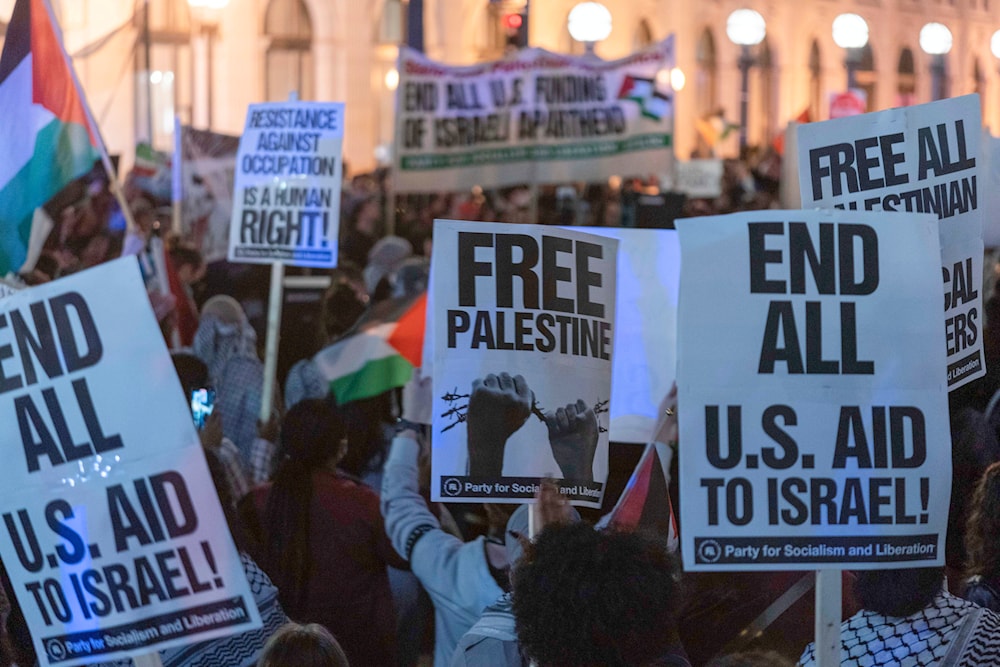US-based ME scholars self-censoring criticism of "Israel": Survey
A recent survey reveals that 81% self-censored their criticism of "Israel," respective to 11% who have withheld their criticism of Palestinians.
-

Protesters rally during a pro-Palestinian demonstration asking for a cease-fire in Gaza at Union Station in Washington, Friday, Nov. 17, 2023. (AP)
A large number of US-based academics focused on Middle Eastern affairs admit they self-censored their criticism of "Israel", since the start of the ongoing Israeli aggression on Gaza and the launch of Operation Al-Aqsa Flood, according to a new survey.
The Middle East Scholar Barometer survey revealed that 81% chose to self-censor their criticism of "Israel", respective to 11% who have withheld their criticism of Palestinians.
Half the respondents chose self-censorship because they were concerned about campus culture and offending other students, as well as pressure from external advocacy groups. Up to 72% of the respondents said they felt a "greater direct or indirect need to self-censor" since October 7.
Read next: Abdulhadi to Al Mayadeen: I was threatened for advocating Palestine
The survey - a project from the University of Maryland Critical Issues Poll and the Project on Middle East Political Science at George Washington University - interviewed 936 participants and was conducted between November 10 and November 17.
"The policing of campus discourse around the Israeli-Palestinian conflict is nothing new, of course. There is a long history of external groups such as Campus Watch and Canary Mission mobilizing pressure on allegedly anti-Israeli professors," Shibley Telhami, from the University of Maryland, and Marc Lynch, from George Washington University, wrote in the Chronicle of Higher Education.
"But, according to the scholars surveyed, things have gotten significantly worse since October 7," Telhami added.
Anti-Palestinian sentiments more common than anti-"Israel"
Most scholars said that anti-Muslim and anti-Palestinian sentiments were more common on their campuses than anti-Jewish and anti-"Israel" sentiments.
Half of them responded that anti-Palestinian sentiments were prevalent on their campuses, while 36% said anti-Israeli sentiments were.
On the other hand, a smaller percentage, 18%, said anti-semitism was more common on campus, while 41% said anti-Muslim sentiments were.
Read next: US public support for 'Israel' waning; majority backs ceasefire: Poll
Earlier in November, a recent report by Axios showed that Palestine, especially in light of the Israeli war against Gaza, has become a deeply divisive topic among Americans. Anti-zionist discourse has grown increasingly amplified, especially on college campuses, getting wrongfully framed as anti-semitic, while Zionist-sympathizers have resorted to Islamophobic bigotry.
The report raised concern that the division over this issue is roiling American society and has the potential to reshape US politics.
“Most foreign policy issues do not generate these kinds of strong feelings in the US,” said Guy Ziv, a professor at American University’s School of International Service. “There has always been a disproportionate interest in this issue.”

 3 Min Read
3 Min Read








